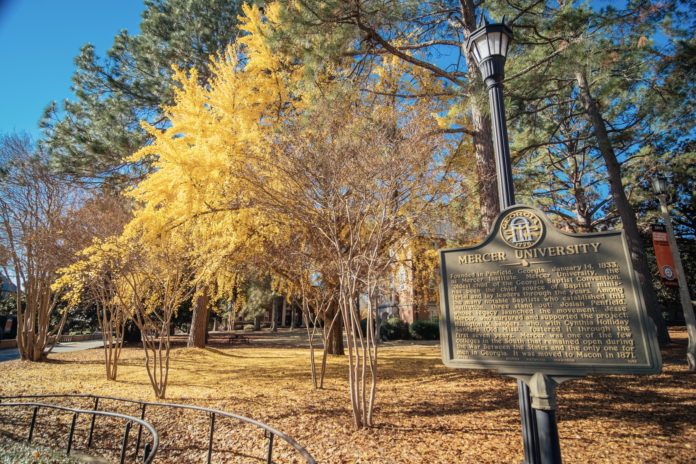Mercer University students played a small but important role in connecting with “at risk” children, many of whom were at a critical juncture in their lives, during their recent three-week Mercer On Mission experience in Brazil. Nine students and two faculty members participated in the program.
“Brazil is a strategic country in which to conduct service-learning,” said Dr. Eric Spears, director of international education and an assistant professor of geography/sociology. “Brazil is one of the ‘BRIC economies’ – as Brazil, India, Russia and China are known – that has reached a specific level of modernization but remains plagued by chronic poverty, uneven development and systemic challenges. It is at this juncture of 21st Century ‘development’ that attention must be given to the scores of children without fair access to education that is so critical.”
In Vitória, the Mercer students worked with approximately 50 children at the Instituto Joao XXIII, a private institution devoted to providing arts enrichment opportunities for impoverished children ages 5-16. The students interacted with the children through photography/craft projects, a cooking demonstration, and sports – teaching each other baseball and soccer. The children also taught the Mercer students to play percussion, perform capoeira – a Brazilian martial art – and dance samba.
In Recife, the group worked with the Friends Forever Christian Community, a project begun by Baptist layman Moab Silva, who works with children from three urban slums, known as favelas in Brazil, who have been moved into a government housing project. Silva’s primary objective is to provide educational opportunities for children to help them pass Brazil’s university entrance exam. Mercer students worked with about 30 children from ages 5-18, doing the same projects as in Vitória. In addition, students renovated one family’s apartment in the government housing project.
The group also visited Rio de Janeiro, where the Mercer students toured the city and visited the American School to learn more about its service-learning efforts in Rocinha, the largest favela in the country of Brazil. Rocinha surrounds the school and abuts one of the wealthiest neighborhoods in the city. The juxtaposition of such poverty and wealth, literally across the street from each other, shows in dramatic fashion the class inequities in Brazil.
In addition to service work, students continued their academic work in the two courses that they had started prior to departure for Brazil. Students were enrolled in SOC 330, The Sociology of Language, Culture and Communication: Brazil, taught by Dr. Spears and CHR 150, Introduction to the New Testament, taught by Dr. Paul Lewis, associate professor of Christianity. The latter course was taught with an emphasis on reading New Testament texts in light of liberation theology. Classes continued to meet in-country and were supplemented in Vitória by attendance at a Corpus Christi celebration in nearby Guarapari and in Recife with guest lectures by liberation theologians Dom Helder Camara, Leonardo Boff and Paulo Freire. Because these courses were taught as service-learning courses, students were required not only to master basic concepts of the courses, but also to apply them as they reflected on their service and cultural experiences and to use insights from those experiences to analyze New Testament texts and sociological concepts of culture and class structure.
“The classes and the service fit together hand-in-glove,” Dr. Lewis said. “Dr. Spears’ class described the material conditions that contributed to the rise of liberation theology in the 1960s and the service enabled us both to understand something of what life is like for those on the underside of society and to understand more of what the New Testament would have meant to its original audience.”
The professors’ spouses, Marsha Lewis and Marina Busatto Spears, also played an important role in the cultural support of the program. Both women were raised in Brazil and have a wide network of cultural connections that provided the Mercer students with intercultural opportunities beyond the classroom and service-learning sites.
Mercer On Mission, a program distinctive to Mercer, combines study abroad and service- learning in the context of developing economies. The primary goal of the program is to provide transformative experiences for students. This is the third year of the Mercer On Mission program and the second time that Dr. Spears and Dr. Lewis have taken a group to Brazil.
– 30 –










